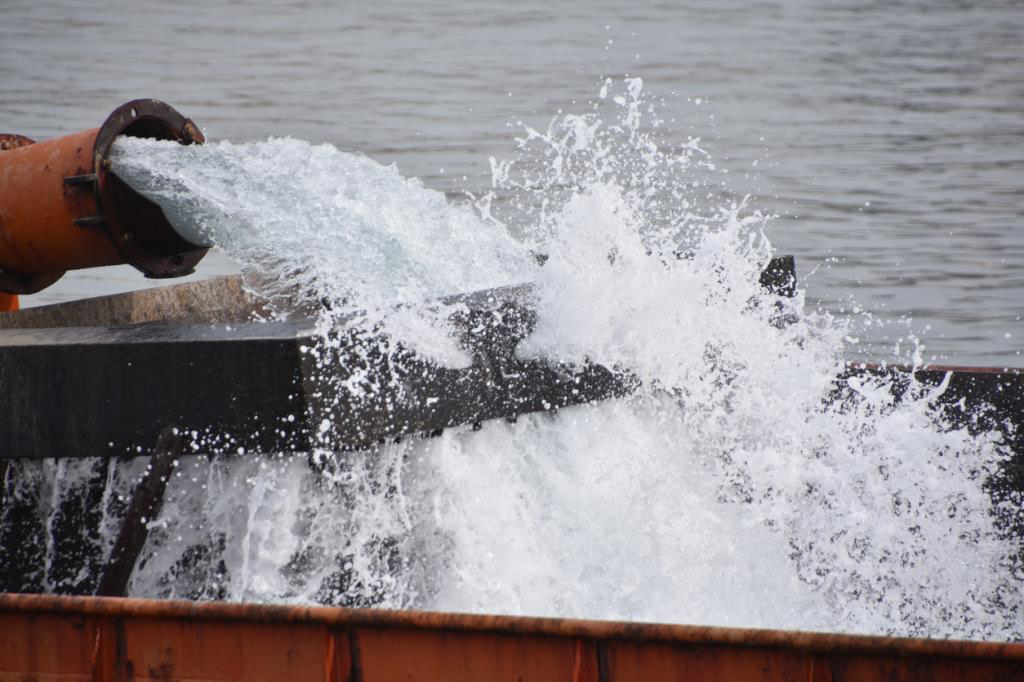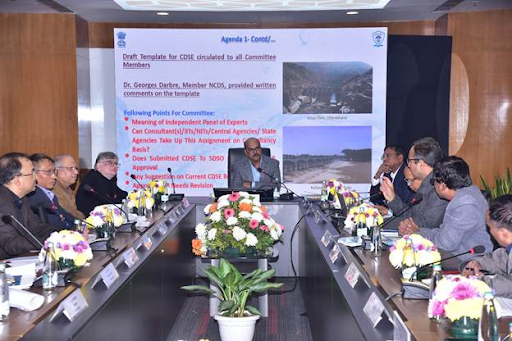Description

Copyright infringement not intended.
Context
The growing importance of desalination as a solution to address water scarcity and climate change challenges.
Details
- Desalination is emerging as a crucial tool to combat climate change challenges and water scarcity.
- Increasingly important for water-scarce nations due to falling technology costs and the rise of renewable energy.
Israel's Pioneering Model: Demonstrating Desalination's Potential
- Israel serves as a pioneering model showcasing effective water scarcity mitigation.
- Combination of desalination, water management, and technology to address water scarcity.
- About 25% of Israel's drinking water comes from desalination, compared to the global average of 1%
Israel's Desalination Success Story
- Israel's desalination capacity started in 2005 and has grown to produce 585 million cubic meters annually.
- Accompanied by a 90% wastewater recycling rate, reducing water-related concerns.
- It has changed public perceptions from water conservation issues to water availability confidence.

Diversification of Water Sources and Global Impact
- Israel shifted from freshwater reliance to diversified sources through desalination.
- Developed agreements to supply desalinated water to neighboring countries like Jordan.
- Five desalination plants operational, two under construction, aiming to account for 85-90% of Israel's annual water consumption.
Challenges and Lessons for Water-Scarce Regions
- Substantial capital investments required for establishing desalination plants.
- Israel's cost-effectiveness is influenced by favorable project financing and lower labor costs.
- Valuable lessons for other water-scarce regions, though challenges in replicating the model globally.
Optimistic Outlook for Desalination Market
- Global Industry Analysts predict significant growth by 2026, driven by countries like China and the United States.
- Technological proliferation likely to decrease costs, making desalination accessible for low-income nations.
Sustainability and Energy Considerations
- Energy-intensive nature of desalination remains a challenge.
- Renewable energy sources pivotal for sustainability, reducing costs.
- Incorporating solar power and storage systems can decrease costs by 2050.
Holistic Strategies for Water Security
- Alongside desalination, strategies like water use campaigns, wastewater recycling, and efficient farming practices are crucial.
- Paradigm shift from viewing water as freely available to valuing it as a commodity.
- Governments' role in making bold decisions to encourage water conservation.
India's Path to Water Security
- India faces water stress due to population growth, urbanization, and climate change.
- Lessons from Israel's journey can inform India's strategies.
Strategies for India
- Adopting Desalination Technology: India can leverage its coastline for desalination in water-scarce coastal areas.
- Recycling and Reusing Wastewater: Prioritize recycling for non-potable uses to alleviate freshwater pressure and pollution.
- Localized Water Management: Tailor solutions to unique water availability and demand patterns in different regions.
- Integration of Renewable Energy: Aligning with India's commitment to renewables, leveraging solar and wind for desalination.
- Water Diplomacy and Cooperation: Explore diplomatic initiatives for shared water resources management with neighboring countries.
- Promoting Public Awareness: Encourage citizens to value and conserve water through awareness campaigns.
- Encouraging Innovation: Invest in water sector research and development, nurturing startups and researchers.
- Crafting Comprehensive Policies: Develop regulatory measures that incentivize water recycling and promote sustainable practices.
- Capacity Building and Knowledge Sharing: Collaborate with Israel to enhance water management capabilities through training and knowledge exchange.
- Long-Term Vision: Invest in resilient water infrastructure, technologies, and policies to withstand climate change and population growth.
- Focus on Brine Management: Consider the reuse and recovery of brine waste by-product generated in the desalination process.
Global Scale of Desalination and Brine
- World produces over 100 billion liters of water daily through desalination, generating concentrated brine.
- Disposal of brine requires careful consideration due to potential ecological damage.
- Converting brine can be economically and ecologically beneficial.
|
PRACTICE QUESTION
Q) Analyze the challenges and opportunities associated with replicating desalination model of Israel in other water-scarce regions, like India.
|
.jpg)
https://www.downtoearth.org.in/blog/water/revolutionising-water-sustainability-israel-s-desalination-success-and-how-india-can-benefit-91187










